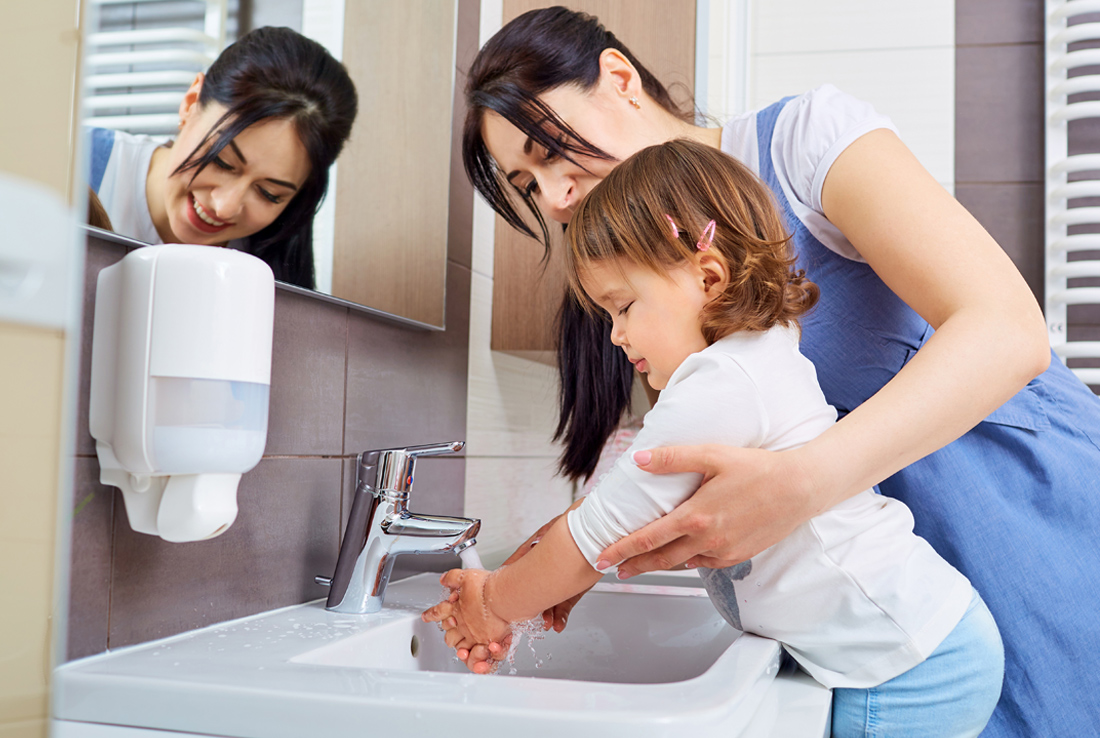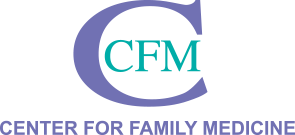Teaching Your Child the Importance of Handwashing

As the winter months approach, it’s particularly important for families with young children to ensure that everyone has good handwashing habits. With seasonal changes and colder weather you’ll find there is a rise in colds, influenza viruses, and other diarrheal and respiratory illnesses that are passed on through physical contact. Here are some tips for teaching your child the importance of handwashing.
Getting started
For very young children, you may want to consider setting the bar of soap aside and investing in a container of soap with a pump that small hands can easily manage. Some brands market especially to little ones, packaging their soap products with appealing colors and designs which encourage children to wash up. Also, bar soap can make the sink area messy and less appealing for children.
Proper handwashing techniques
The CDC lays out five basic steps: wet, lather, scrub, rinse and dry:
Wet your hands with running water. (Make sure the water’s clean). Turn off the tap and apply the soap to your hands.
Lather your soapy hands by rubbing them together. Pay particular attention to the areas between your fingers, under your nails, and the backs of your hands.
Scrub your nails for at least 20 seconds — the same amount of time it takes to hum the song “Happy Birthday” twice from start to finish.
Rinse your hands thoroughly. Once again, use clean, running water.
Dry your hands. You can use a clean towel or air-dry your hands.
When to wash your hands
It’s important to wash your hands at these times:
- After using the restroom
- Before you brush your teeth (because the hand is so close to the mouth when you brush)
- After you touch something dirty or come in contact with a contaminated object or surface
- After you cough or sneeze
- After you blow your nose
- Before meal time
- After handling toys or other objects that pass through multiple sets of hands in public places
Our goal at the Center for Family Medicine is not just to treat but to educate our patients. By taking preventative steps like teaching your children the importance of handwashing, you and your family can live happier, healthier lives — during cold and flu season, and throughout the year.


